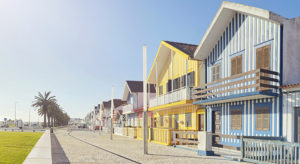What is a Condominium?
A condominium or condo refers to a building or residential complex where the units are owned by individuals and the common areas such as hallways, grounds, pool, recreation areas, gym and building itself are jointly owned and maintained by the condominium association (collective of all the unit owners). This is commonly known as flats or apartments in the UK. Apartments in the US refer to a building of units owned by a single entity or corporation and rented to individual tenants.
Condominiums make up a large part of the Florida property market and are especially prominent in the beachfront communities.
Condo owners pay dues (usually monthly) to a condo board usually known as the condo association which is made up of elected condo owners who take care of hiring of pool cleaners, landscapers and other tradesmen for maintenance and repairs of the building. Usually, anything outside the walls of your unit is the responsibility of the board to repair and maintain. They are also responsible for preparing a budget in order to determine the monthly fees charged to the owners. Sometimes the board will hire a professional management company to manage the complex and the budget for the association.
Condos are ideal for people who want to own a piece of property but don’t want to worry about yard work and maintenance. They are a great option if you live out of the state or country.
Condominium Maintenance Fees
Owning a condo almost always means you will be responsible for paying a monthly fee to the condo association. These fees can vary significantly from one development to another but generally, they pay for repairs and maintenance of any amenities outside your personal living space. Here is a general list of what your monthly fees may cover:
Utilities:
Most condo developments cover utilities such as water, sewer, and trash removal. Sometimes cable TV and internet are also covered. Electricity is usually the responsibility of the owner.Insurance:
Most condo fees include insurance that covers the building exterior and common elements. It also usually covers flood and hurricane insurance. You will usually only need to purchase insurance that covers the interior of your home and your possessions.Reserve Fund (escrow reserves):
The reserve fund is money put aside for repairs that are planned ahead of time. It can cover items such as roofing, paving, exterior painting, pool resurfacing and any building modernization. A well-managed condominium board will charge owners a certain monthly amount that will go into this fund.Security:
This could be a full-time security gate guard in a gated community, security cameras for hallways and grounds or a system that visitors use to be buzzed into the building.
Special Assessments
In addition to your monthly fees, it is possible that special assessments may arise. This is usually when there is not enough money in the reserve fund to cover unexpected large items or if the board has chosen to keep monthly fees down and prefer to charge special assessments that can be paid in one payment or tagged on to the owner’s monthly fees in smaller increments. It is very important to check if there are any proposed special assessments before you purchase a condo. They can sometimes be large amounts of money and the reason a seller has decided to sell.
Condominium Documents
In Florida, it is a law that a seller provides access to the condominium documents within a certain period of time set out by the sales contract and before closing. These are the “governing documents” of a community and they include the declaration of covenants, articles of incorporation, the bylaws, estimated operating budget, rules, and regulations and frequently asked question and answer sheet. Upon the receipt of the last required document, a three day right of rescission period begins. During this period, the buyer has the right to unilaterally terminate the purchase agreement simply by providing written notice of termination to the seller, after which the buyer will be refunded any deposit made as part of the purchase. When purchasing a condominium from a developer, Florida Law requires all buyers are provided with a 15 business day rescission period. When you purchase a condo make sure you receive and keep these documents for when you sell the property. A copy of these documents is usually available (at a cost) from the condo association or management company.
Some Important Rules You Should Check Before You Decide To Purchase
All condominium developments have a set of rules and regulations which you should be familiar with before you purchase. Some of these rules could be a deciding factor as to whether buying in that particular community makes sense for you. For instance, if you want to rent out your condo, a rule that states you must own for a year before renting would not make it a good purchase for you. Here are some of the most common rules you would need to know.
Is there any age restriction?
There are many age-restricted communities for people 55+ in Florida.Do they allow pets?
Many do not allow pets, and some have restrictions on type, breed, number, and weight.What are the rental restrictions?
This can vary considerably between allowing one-night rentals to not allowing any rentals at all. There may also be a waiting period of ownership before you can rent. Always make sure you know all the rental restrictions before you purchase.Are there any restrictions on vehicles?
Some communities do not allow motorcycles or work trucks to be parked overnight.Are there rules regarding improvements?
Most communities will allow remodeling of the interior of the condo but may have restrictions regarding flooring, window replacements and whether you are allowed a washer/dryer within the unit.Are there any rules on parking?
Some communities have open parking and some assign designated parking spaces. Some units may have a garage or carport assigned and other units may not.These are just a few of the major rules that could be a deciding factor as to whether the condo is right for you. Always make sure you obtain an updated copy of the community rules and regulations.
Condo Hotels
A condo hotel, also known as a Condotel, hotel-condo is a building, which is legally a condominium, but which is operated as a hotel, offering short-term rentals, and which maintains a Front Desk. These hotels have condominium units which allow someone to own a full-service vacation home. When they are not using this home, they can leverage the marketing and management done by the hotel to rent and manage the condo unit as it would any other hotel room. There are often restrictions as to how long an owner can stay in the unit. They are also more difficult to obtain financing.
There are lots of advantages of owning a condo but always make sure you do your due diligence and work with an expert agent that can help you avoid unexpected fees or surprises once you have already purchased.
If you have any questions regarding buying, selling or owning a condo please contact us, we are always here to help.
Posted in Blogs





